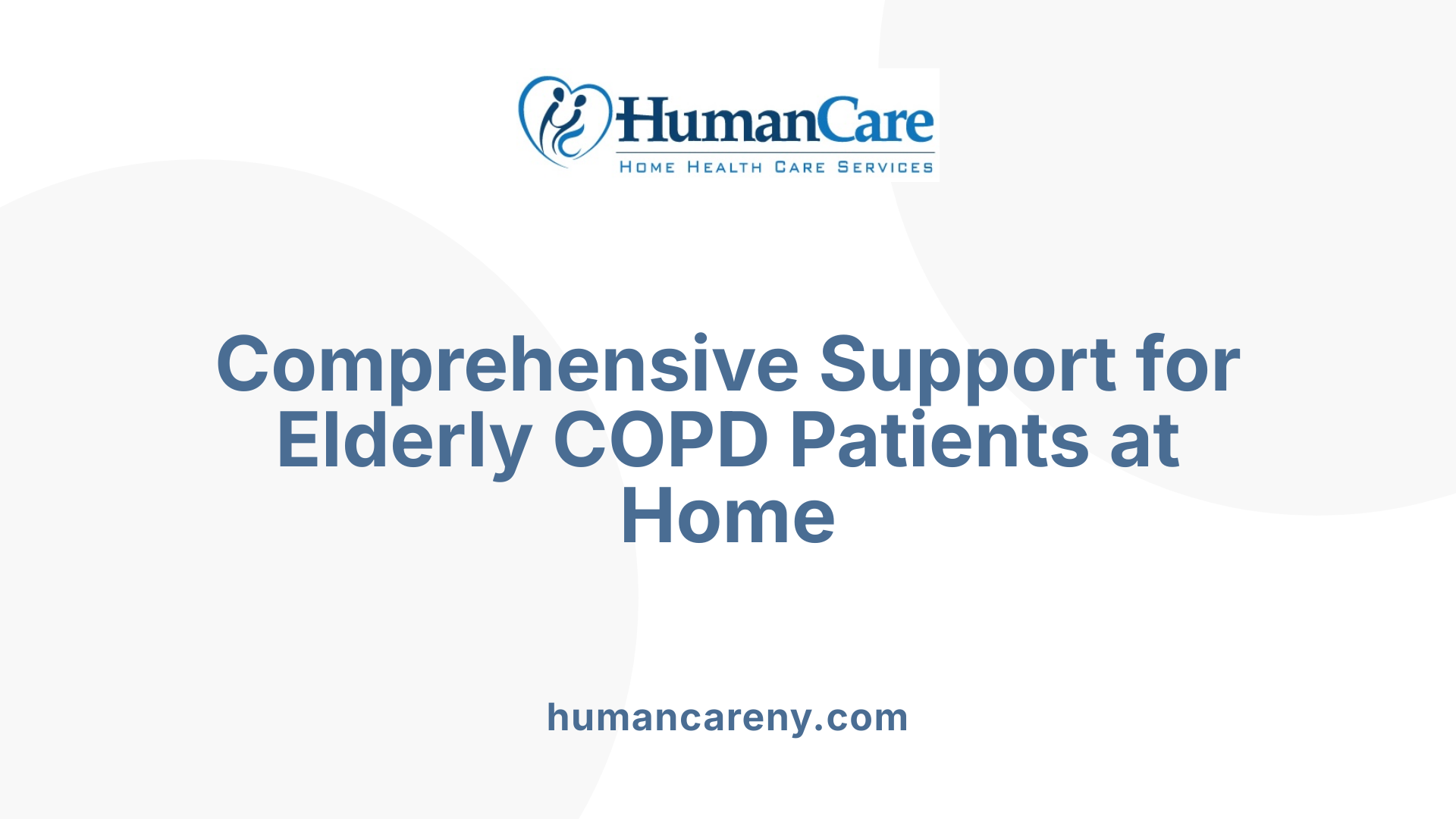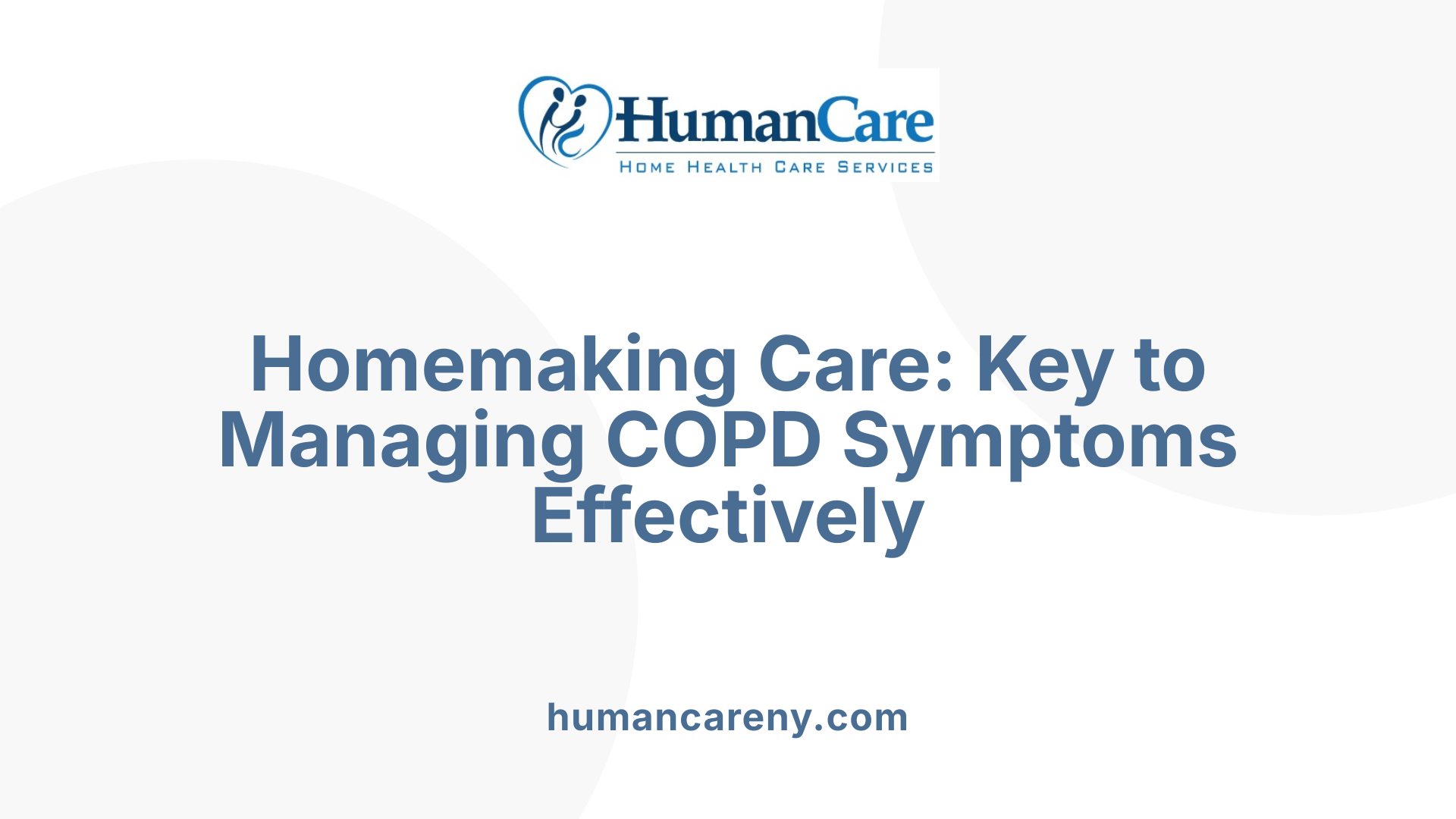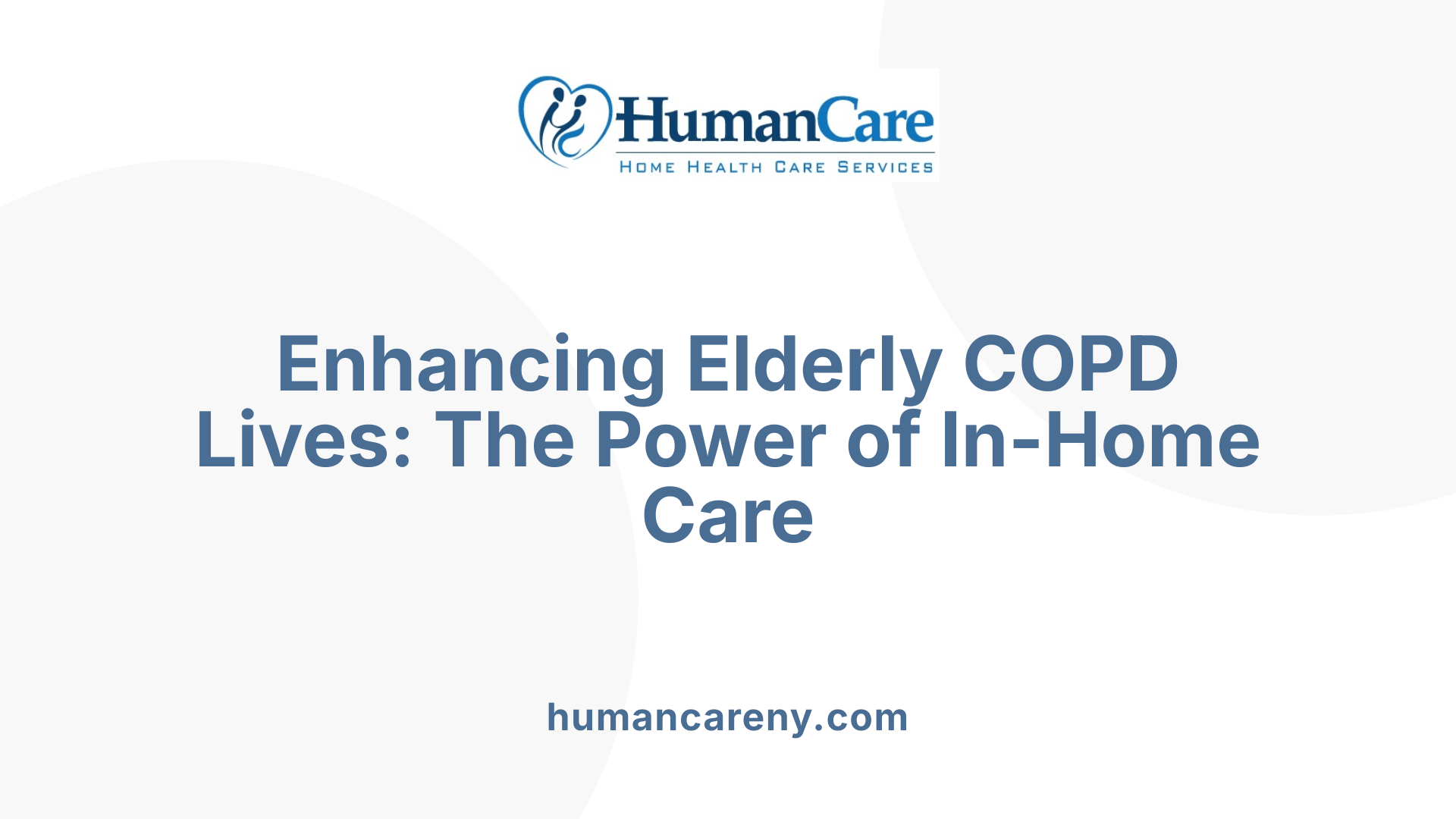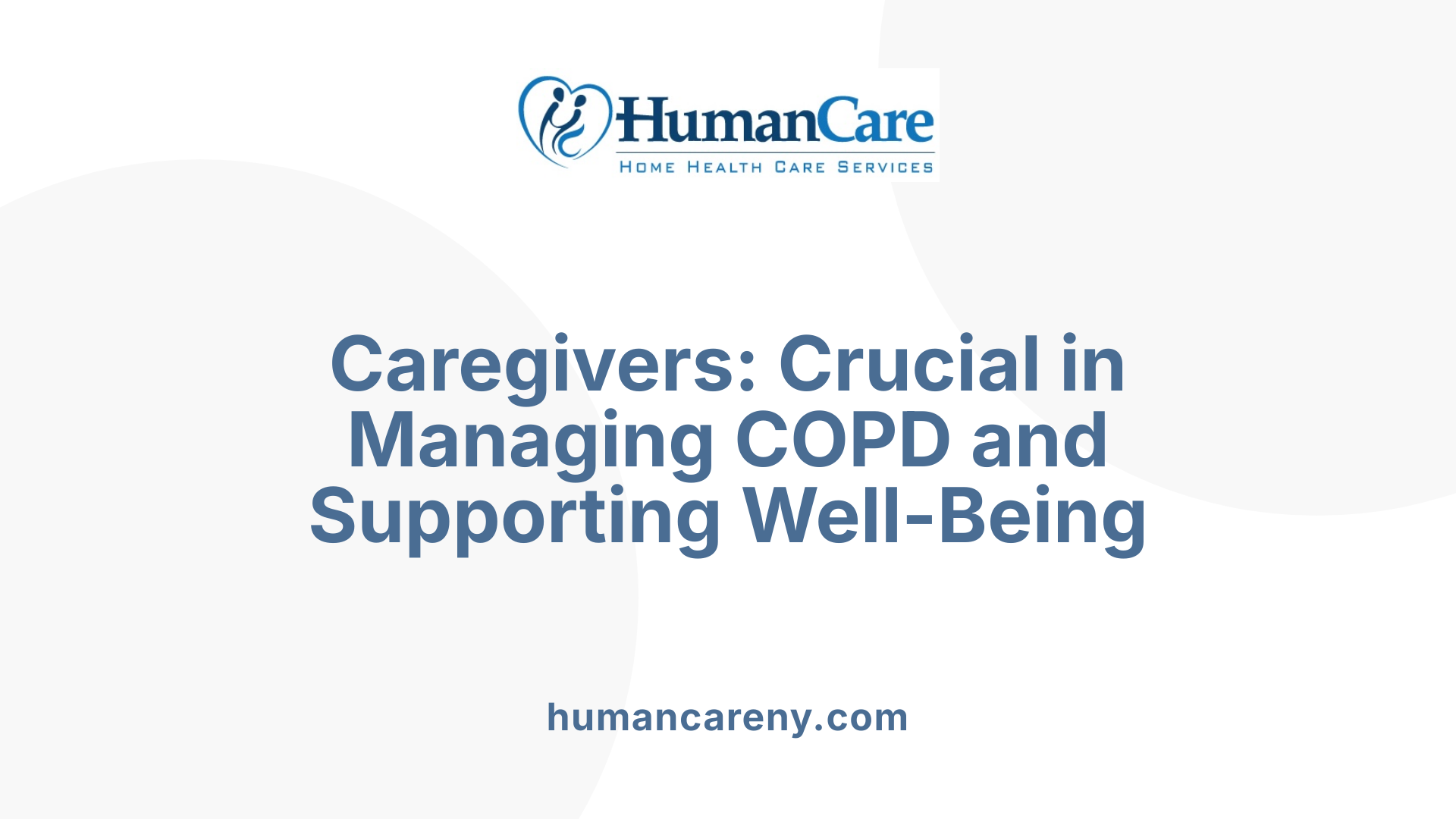Understanding the Power of Homemaking Care in Chronic Respiratory Disease Management
Chronic Obstructive Pulmonary Disease (COPD) poses significant challenges to elderly individuals, impacting their breathing, activity levels, and overall quality of life. However, comprehensive in-home care,or homemaking services, can dramatically improve outcomes by offering personalized support, symptom management, and emotional well-being. This article explores the multifaceted benefits of homemaking care for elderly COPD patients, highlighting how tailored interventions can foster independence, reduce hospitalizations, and enhance overall life satisfaction.
Personalized Treatment and Emotional Support Enhance Well-being
How does personalized treatment and emotional support through homemaking care help elderly individuals with COPD?
Personalized treatment and emotional support provided through homemaking care play a crucial role in improving the lives of elderly individuals living with COPD. Tailored care plans address the specific needs of each patient, including medication reminders, environmental adjustments to reduce irritants, and energy conservation techniques. Such individualized strategies help manage symptoms effectively, prevent exacerbations, and make daily activities less tiring.
Caregivers also focus on emotional companionship, offering emotional support and reducing feelings of loneliness or depression. Simple activities like engaging conversations, facilitating participation in support groups, or practicing stress reduction techniques can significantly boost psychological health.
Creating a safe home environment is fundamental to the approach. Caregivers may assist with modifications such as improving ventilation or reducing dust and mold, which can trigger flare-ups. This sense of safety and familiarity fosters independence and peace of mind.
Furthermore, consistent healthcare engagement through regular monitoring helps adjust treatments promptly. Home care support ensures that both physical and emotional needs are met comprehensively. Resources and training for caregivers empower them to sustain their compassionate roles, ultimately leading to better health outcomes and a higher quality of life for elderly COPD patients.
| Aspect | How It Helps | Additional Details |
|---|---|---|
| Tailored care plans | Manages symptoms, reduces exertion | Includes medication schedules, environmental tweaks |
| Symptom management | Prevents exacerbations, improves breathing comfort | Inhaler technique, oxygen therapy, physical activity guidance |
| Emotional support | Reduces loneliness, alleviates stress | Companion activities, counseling, peer support groups |
| Home environment safety | Minimizes triggers, increases comfort | Air quality improvements, ergonomic adjustments |
Overall, customized in-home care fosters a supportive and secure environment, enabling elderly individuals with COPD to enjoy better physical health and emotional well-being.
Support Provided by In-Home Care Services

What support do in-home care services provide for elderly individuals with COPD?
In-home care services play a vital role in helping elderly COPD patients manage their condition effectively. These services include medication adherence support, where caregivers assist with timely inhaler use, oxygen therapy, and understanding treatment plans. Ensuring proper medication management reduces the risk of flare-ups and hospital visits.
Monitoring symptoms is another crucial aspect. Caregivers regularly check vital signs, observe breathing patterns, and recognize early signs of exacerbations such as increased coughing, shortness of breath, or swelling. They provide early intervention, which may involve contacting healthcare providers promptly.
Home safety assessments are performed to identify environmental hazards and make modifications. Caregivers may recommend removing dust, improving ventilation, and creating ergonomic spaces to prevent irritants and reduce physical strain. These modifications foster a safer, more comfortable living environment.
Emotional and social support is provided to combat feelings of isolation. Caregivers offer companionship, encouragement for light physical activity, and help with emotional coping. They also assist with daily chores and personal care, allowing the patient to conserve energy.
Coordination with healthcare providers is integral, with caregivers helping to organize appointments, communicate health updates, and access additional resources like support groups and educational materials. This comprehensive approach ensures continuous, personalized care that aims to improve overall well-being and minimize hospitalizations.
| Support Area | Services Provided | Additional Details |
|---|---|---|
| Medication Management | Assistance with inhalers, oxygen therapy, adherence checks | Ensures proper drug use and prevents complications |
| Symptom Monitoring | Regular vital signs, observation of breathing | Early detection of worsening health |
| Home Safety | Environmental modifications, hazard removal | Reduce irritants and physical risks |
| Emotional Support | Companionship, emotional care | Alleviates loneliness and stress |
| Care Coordination | Appointments, resource access | Facilitates seamless healthcare delivery |
By providing these services, in-home care supports COPD patients in maintaining independence, reducing stress, and enhancing their quality of life.
Benefits of Homemaking Care in Managing COPD Symptoms

What are the benefits of homemaking care for elderly individuals with COPD?
Homemaking care plays a crucial role in supporting elderly individuals suffering from COPD by offering tailored assistance that addresses both medical and daily living needs. One of its primary benefits is the regular monitoring of symptoms such as coughing, shortness of breath, and swelling, which allows for early identification of exacerbations and timely intervention.
Caregivers also help maintain an environment that minimizes triggers for COPD flare-ups. They ensure good air quality by addressing ventilation issues, reducing dust, and avoiding indoor irritants. Additionally, homemaking services include reminders for medication adherence, making sure patients take their inhalers and other medications on time to control symptoms effectively.
Encouraging light physical activity, such as short walks or gentle exercises, is another advantage. Caregivers design and support activity plans suited to each patient’s capacity, which can enhance breathing and overall fitness.
Moreover, they assist with daily chores like meal preparation, laundry, and keeping the home organized, helping conserve energy and reduce fatigue. These tasks also contribute to a healthier living environment by promoting cleanliness and reducing exposure to pollutants.
Emotional support is equally important; companionship provided through homemaking care alleviates feelings of isolation and stress, promoting mental well-being. This holistic approach not only improves quality of life but also helps prevent emergency hospital visits, allowing patients to maintain independence longer.
In summary, homemaking care offers comprehensive benefits for elderly COPD patients by improving symptom management, safety, and emotional health, which together support a more comfortable and active life.
Impact of Home Care on Health Outcomes and Quality of Life

How can in-home care improve health outcomes and quality of life for elderly people with COPD?
In-home care plays a vital role in enhancing the health and well-being of elderly individuals living with COPD. It provides essential support in managing daily activities, ensuring medication adherence, and assisting with transportation to medical appointments. These practical interventions help maintain stability and prevent health deterioration.
One significant benefit of in-home care is the active involvement of informal caregivers, typically family members. Their participation encourages patients to follow prescribed treatment plans more diligently, which reduces the frequency of emergency visits and hospitalizations. Caregivers also help promote healthier lifestyles by supporting smoking cessation, healthy eating, and light exercise, which can slow disease progression.
Monitoring symptoms closely is another advantage. Home caregivers keep an eye on changes like increased shortness of breath, swelling, or fatigue, allowing for early detection of worsening conditions. This proactive approach can prevent emergencies and complications, thereby improving overall health outcomes.
Furthermore, education provided to both patients and caregivers enhances understanding of COPD management and fosters emotional resilience. Care plans tailored to individual needs and preferences promote independence and comfort, making daily routines easier and improving mental health.
Supporting caregivers reduces their burden and emotional distress, which, in turn, positively impacts patient care. Combining in-home medical supervision with family involvement creates a comprehensive support system that not only manages symptoms effectively but also boosts quality of life.
In summary, integrating in-home care with family participation fosters a more responsive, preventative, and supportive environment. This approach leads to better health outcomes for elderly COPD patients while also promoting emotional and physical well-being.
The Role of Caregivers in Managing COPD and Supporting Well-being

What role does caregiving play in managing COPD symptoms and enhancing well-being among the elderly?
Caregiving is essential in helping older adults with COPD maintain their health and quality of life. Caregivers assist with daily tasks such as light housekeeping, meal preparation, and helping the patient stay active through gentle exercises and walks. They also monitor for symptoms like increased coughing, shortness of breath, or swelling, which can signal an exacerbation requiring medical attention.
Medication adherence is another crucial area. Caregivers remind patients to take their medications on time, help with inhaler techniques, and ensure treatments are followed properly. This support reduces the risk of flare-ups and emergency hospital visits.
Creating a safe and supportive living environment is vital. Caregivers address possible irritants like dust, smoke, or strong odors and help organize the home to conserve energy. They also assist with transportation to doctor appointments, ensuring regular medical checks and continuity of care.
Emotional support and companionship significantly impact overall well-being. Caregivers provide reassurance, reduce feelings of loneliness, and help manage stress. Their role extends to educating patients about COPD management and fostering a sense of independence, which helps preserve dignity and confidence.
Collaboration with healthcare professionals is necessary for effective care. Caregivers participate in care planning, learn about symptom management strategies, and attend medical consultations when needed. This teamwork ensures early intervention, better symptom control, and improved health outcomes.
By integrating medical support, emotional care, and environmental modifications, caregivers significantly enhance the quality of life for elderly COPD patients. Their ongoing involvement offers stability, reassurance, and help navigating the challenges of a progressive disease.
Empowering Elderly COPD Patients Through Care at Home
Homemaking and in-home care services constitute a vital support system that not only alleviates the physical challenges of COPD but also promotes emotional resilience and independence among elderly patients. Tailored care plans designed around their specific health needs, combined with consistent monitoring, medication adherence, environmental modifications, and emotional companionship, result in better health outcomes and an improved quality of life. Supporting caregivers through education and resources ensures sustained, compassionate care and reduces the risk of hospitalizations. As the healthcare landscape emphasizes patient-centered approaches, homemaking care emerges as a cornerstone strategy to help elderly individuals with COPD live healthier, more autonomous lives in the comfort of their homes.
References
- The Benefits of Home Care While Living with COPD
- Informal caregivers of patients with COPD: Home Sweet ...
- Benefits of Home Health Care and Hospice Care for COPD ...
- Benefits of In-Home Care for COPD Patients
- 5 Reasons Caregivers Are Vital to Seniors Managing COPD
- Home Care Iowa: Helping Individuals With COPD
- The Benefits of Home Care While Living with COPD



